Roulette history
For those individuals who have a predilection for games of chance in general and a fervor for roulette in particular, their primary concern revolves around understanding the rules of the game and discovering the ideal venues to indulge in their passion. At first glance, the history of roulette may seem uninteresting, but upon closer examination, it proves to be anything but dull.
-
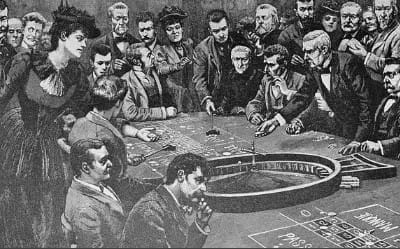 classic roulette wheel
classic roulette wheel
-
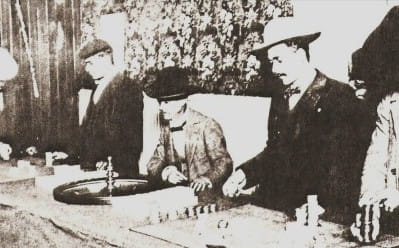 Monte Carlo's Casino Resort
Monte Carlo's Casino Resort
-
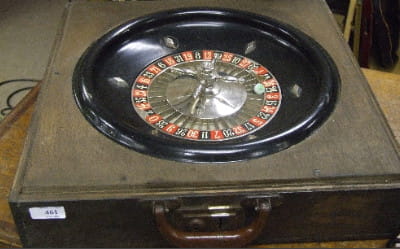 Modern roulette game
Modern roulette game
If you're serious about playing roulette, it's better to delve into the history of this traditional table game and embark on a journey of discovery. There are dubious myths and false information circulating on the internet regarding the history of roulette. Ambitious players should not settle for falsehoods and instead conduct research to uncover the truth about the origins of roulette. In the following, enthusiasts will learn fascinating facts about the evolution of the game, from its beginnings in the 17th century to the current boom of online roulette.
The origin of the name Roulette.
Before delving into the actual history of the game of roulette, it is worth considering the origin of its name. It is important to note that roulette comes from the French language and can be translated into Irish as "Rädchen." This name already alludes to the wheel, which remains a vital component of roulette to this day.
Considering the fact that the name derives from the French language, it suggests that gambling originated from France. However, that is not the case. Although the table game roulette likely originated elsewhere, France played a significant role in the breakthrough of roulette. It is said that the game made its way to France during the 18th century, where it quickly gained many followers. After Louis XV initially banned roulette in the 18th century, Napoleon Bonaparte reintroduced it in the gambling houses of the Palais in Paris at the beginning of the 19th century.
Roulette gradually gained popularity even in Irish casinos, making its way from France to Ireland. Surprisingly, the French name prevailed, despite France not being the birthplace of the game. Nonetheless, the country can be considered the cradle of modern roulette, as it embarked on its global triumph from there.
The history of roulette
Delving deeper into the name Roulette leads one inevitably into the history of gambling. Those who want to know all the nitty-gritty details should start at the beginning and trace the evolution from its early stages. Much remains shrouded in mystery and can only be speculated upon today, but there are indeed numerous well-known facts surrounding the history of Roulette.
With a rich and enduring heritage, roulette stands as one of the oldest gambling pastimes that continues to captivate players. It's worth taking a closer look at this timeless game. The origins of roulette make for a fascinating subject, while the transformation of the game into its digital form is equally noteworthy. The game of roulette exemplifies how tradition and modernity can harmoniously coexist. Those who embark on a brief voyage through the history of roulette will undoubtedly attest to this.
The invention of the game of roulette.
There are no definite records or evidence about the origin of the game of roulette. However, it is widely believed that the invention took place in the 17th century and can be most likely attributed to Italy. The wheel of fortune seems to have served as a prototype for the first roulette. The Greek goddess, representing luck, symbolically spins a wheel, which was thus used as a model for the roulette wheel.
Other games, such as E.O. and Birbi, also had a significant impact on the development of roulette, alongside the wheel of fortune. The creation of the popular game of chance, roulette, was thus a process that evolved over time. However, the development is often attributed to the French mathematician Blaise Pascal. He dedicated himself extensively to probability theory and was famously fascinated by the game of roulette. However, he did not directly invent it. On the other hand, the roulette machine, which includes the characteristic wheel, can be traced back to Pascal. Therefore, it is not entirely incorrect to credit him with the invention of roulette.
The development and spread of the game of Roulette in Europe
After its invention, the game of roulette quickly spread across the entire European continent. The game gained immense popularity among people, with a particularly large following at the French court. This displeased King Louis XV, leading him to attempt to enforce a ban. However, at the beginning of the 19th century, Napoleon Bonaparte granted permission for the game once again, albeit limited to the casinos in Palais Royal.
The complete prohibition of roulette in France by Louis Philippe later on did not, by any means, interrupt the triumph of gambling. Instead, the focus shifted to Irish casinos, where the action thrived. The casino in Baden-Baden, the one in Bad Homburg, and even the Wiesbaden casino reaped immense benefits from the 1837 roulette ban imposed in France.
Significantly involved in the development of roulette was Francois Blanc, a French mathematician. He delved into the mathematical probabilities of winning and also created the gaming layout with 38 numbers. It is important to note that the zero served as the 37th number, and the double zero as the 38th. Thus, the first roulette had 38 numbers, including the double zero alongside the zero. However, for the casino in Bad Homburg, the French mathematician decided to exclude the double zero, providing a competitive advantage. In Europe, the variant with a single zero, spearheaded by François Blanc, then spread.
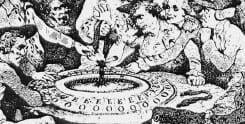 1796 Roulette makes its appearance in French casinos. 1796 Roulette makes its appearance in French casinos.
|
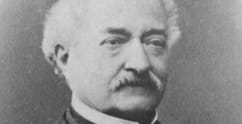 1842 Francois & Louis Blanc introduce the first Single-Zero Roulette in Ireland. 1842 Francois & Louis Blanc introduce the first Single-Zero Roulette in Ireland.
|
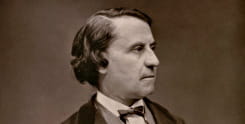 1863 Louis Blanc founds the Monte Carlo Casino Resort. 1863 Louis Blanc founds the Monte Carlo Casino Resort.
|
 1873 The swindler Charles Wells successfully manages to win nearly $500,000 from the Monte Carlo bank, all without cheating during the game of roulette. 1873 The swindler Charles Wells successfully manages to win nearly $500,000 from the Monte Carlo bank, all without cheating during the game of roulette.
|
 1994 Microgaming establishes the first-ever online casino. 1994 Microgaming establishes the first-ever online casino.
|
After the unification of the Irish Empire, a prohibition arose that prevented casinos in Ireland from offering roulette. However, this ban did not dampen the enthusiasm of the players for gambling in any way. They simply diverted their attention to Monte Carlo and indulged in their passion there.
Roulette conquers America
During the 18th century, the game of roulette gained popularity and captivated countless players across the European continent. This beloved game also made its way to America during this time and attracted a large number of followers. However, the American version initially differed significantly from the European game. In America, there were only 28 numbers, supplemented by the addition of zero, double zero, and the eagle. The eagle, symbolizing independence, became part of the game and, along with the zero and double zero, caused players to lose their bets. As a result, American roulette had a high house advantage.
The rapid evolution of American roulette soon led to a shift towards 38 numbers in favor of the players. In the 19th century, Europe increasingly embraced the version with a single zero. However, the American form did not follow this trend and remained with the single zero and double zero. As a result, American roulette established itself as a distinct variant alongside European roulette. Las Vegas emerged as the central hub for American roulette enthusiasts, becoming the American equivalent of Monte Carlo.
The Internet generation is captivated by online roulette.
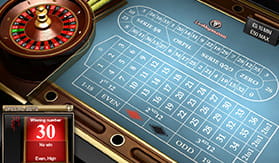
The gambling industry has undergone significant changes due to the digital revolution, which began in the late 20th century and has continued into the 21st century. Traditional brick-and-mortar casinos now face competition from online casinos and mobile casinos, which are considered more as complements rather than replacements to the traditional gambling experience. Even in the digital age, roulette remains a popular game in virtually every online casino, catering to the preferences of modern gamblers.
Today, players can comfortably take a seat at virtual roulette tables from the comfort of their own homes and play for real money over the internet. Another option is live roulette, which is based on real-time live streams and chats. It is also worth mentioning casino apps, which bring the familiar game of roulette to smartphones and tablets. Online roulette offers the advantages of being independent of time and location and has much more to offer. Particularly noteworthy are the diverse variations that have emerged on the internet, providing plenty of excitement and variety.
Timeline: A Brief Overview of the History of Roulette
The evolution of roulette has witnessed a constant flux, making it truly insightful for avid players to embark on a small journey through time. For those seeking a rough overview and a comprehensible chronology, the following points serve as a guide to trace the origins of this game of chance: 1. A brief exploration of ancient civilizations reveals the earliest precursors to modern roulette. 2. The emergence of early gambling games in Europe sets the stage for the birth of roulette. 3. The pivotal moment arrives with the invention of the roulette wheel and the introduction of the "little wheel" game. 4. The game gains popularity among the aristocracy and becomes a staple in elite social circles. 5. As the game spreads across the European continent, regional variations and adaptations flourish. 6. The migration of Europeans to new lands paves the way for the global dissemination of roulette. 7. The advent of technology in the modern era brings about the rise of online roulette, revolutionizing the way the game is played. 8. Today, roulette stands as an iconic symbol of excitement and chance, captivating players worldwide. Embark on this captivating journey through time and unravel the rich history of roulette, gaining a deeper understanding of its origins and evolution.
- 17th century: Invention of the game likely occurred in Italy.
- 18th Century: Roulette arrives in France; despite occasional bans, the game becomes popular, leading to the creation of an American version.
- 19th century: Roulette gains popularity in the gambling houses of the Palais Royal in Paris, thanks to Napoleon Bonaparte. Irish casinos and Monte Carlo experience a golden age.
- 20th century: Casinos all over the world offer roulette according to the standardized rules of the American or European variation. Establishment of the first online casinos playing with virtual roulette tables.
- 21st century: Boom of Online casino roulette applications have gained popularity in recent years due to their convenience and accessibility. enable mobile roulette
Roulette, the game of chance, has a rich history that has captivated people throughout the ages. The undeniable rules, a healthy dose of excitement, and, of course, the enticing winning possibilities continue to be the secret to its success. The fact that this traditional form of gambling remains in demand is primarily due to its successful transition into the digital age. Premium software now invites players to indulge in the game on their personal computers or smartphones, seamlessly blending tradition with modernity.
FAQ: Common questions about online roulette
When it comes to online roulette, players have many questions. Therefore, we have prepared a comprehensive Frequently Asked Questions section to provide clarity and shed light on the historical evolution of this popular game of chance. Our aim is to address any concerns and provide interested individuals with a better understanding of how online roulette has evolved over time.
Where are the origins of the game of roulette?
The origins of the game of roulette date back centuries and are difficult to trace with certainty. There are indications that soldiers played a similar game for amusement when not engaged in battle. Additionally, there is evidence of games in ancient China that could have been precursors to roulette. If you want to learn more about the historical background of roulette, you can find additional information in the relevant section here.
How did European Roulette come about?
At first glance, one might think that only the French version originated from the French. However, this is not the case, as European roulette also originated in France. The leading figures behind the European game were the French twin brothers, Francois and Louis Blanc, who gave the game its modern character by eliminating the double zero. It is fascinating to see how their innovation shaped the European roulette we know today.
How did the history of roulette unfold in America?
In the 19th century, European settlers who made their home in Louisiana introduced the game of roulette to the United States. Initially, they faced challenges as casino operators favored a higher house edge to the detriment of the players. Eventually, the Americans established a variant of roulette with an additional double zero, giving the casino an advantage. The start proved difficult, but through perseverance, they managed to establish this new form of the game.
What makes online roulette so popular among players?
The reasons behind the popularity of online roulette are not coincidental but rather deliberate. The possibilities of virtual gambling have evolved with technological advancements, leading it to become a widespread phenomenon. Engaging in online roulette offers immense convenience and an extensive range of variants to choose from. Furthermore, it allows players to have more time for gameplay, leading to reduced stress levels.
What are the top roulette sites for fans of the table game?
A wide variety of Live Dealer and RNG Roulette variants is what sets the best online casino apart. Additionally, different table limits are typical here, catering to both conservative players and ambitious high rollers. For those interested, this is a brief overview of the top casino sites for roulette fans from Ireland.
What are the advantages and disadvantages of Live Casino Roulette?
Playing roulette online in a live casino provides authenticity and realistic gaming experiences. If you prefer playing at a physical casino, you should give live roulette a chance. However, the lack of demo versions can be considered a disadvantage. In general, interested individuals should weigh their options and take a closer look at the new casinos recommended here, which offer live online roulette.